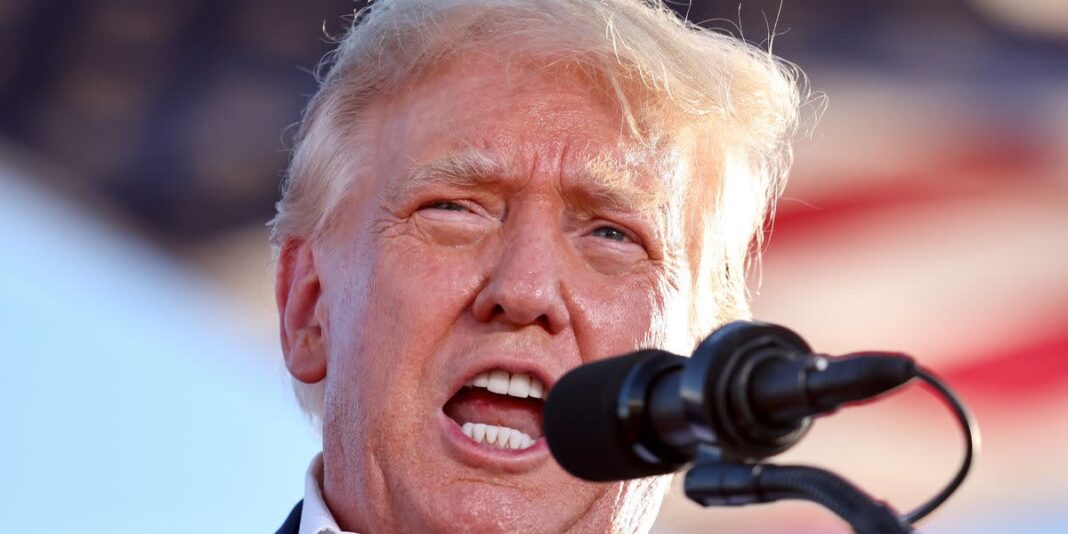Donald Trump on Thursday tore into a California judge he called a “partisan hack” after stating in a ruling that the former president filed a lawsuit claiming election fraud that he knew was false.
Trump was named Wednesday in a decision by U.S. District Court Judge David Carter, who ruled that attorney John Eastman’s emails with the former president were not protected attorney-client communication because they may be evidence of a crime.
The emails are “sufficiently related to and in furtherance of a conspiracy to defraud the United States,” Carter wrote in his 18-page ruling.
The judge ordered that dozens of documents, including the emails, be released to the House Jan. 6 committee investigating last year’s attack on the Capitol.
The emails, he wrote, “demonstrate an effort by President Trump and his attorneys to press false claims in federal court for the purpose of delaying the January 6 vote.”
Trump filed “certain lawsuits not to obtain legal relief, but to disrupt or delay the January 6 congressional proceedings through the courts,” he noted.
Eastman was an architect of the attempt to overthrow the 2020 election, who concocted a scheme outlined in his so-called “coup memo” to have former Vice President Mike Pence refuse to certify electoral votes last Jan. 6.
Carter’s decision could hold serious consequences for Trump if it’s proven that he engaged in a conspiracy to overturn an election he knew was legitimate.
Trump criticized Carter in a Truth Social post Thursday for “saying and sending to all, very nasty, wrong and ill informed statements about me on ruling or a case (whatever!), currently going on in California.”
“Please explain to this partisan hack that the President Election of 2020 was Rigged and Stolen,” he added.
There’s no evidence the 2020 election was rigged, despite careful examination by numerous state legislatures and election boards, and dozens of court cases across the nation.
Carter noted in his ruling that Trump had filed a lawsuit falsely stating that thousands of votes in Georgia were illegal — even though he had been informed by Eastman that some of the claims were “inaccurate” and without evidence to support them.
After Trump signed a verification for an original state court filing in December 2020, he was “made aware that some of the allegations (and evidence proffered by the experts) has been inaccurate,” Eastman warned in one of his emails cited in the ruling. “For him to sign a new verification with that knowledge (and incorporation by reference) would not be accurate.”
Trump and his legal team nevertheless went on to file a later complaint “with the same inaccurate numbers without rectifying, clarifying, or otherwise changing them,” Carter wrote. “The emails show that President Trump knew that the specific numbers of voter fraud were wrong but continued to tout those numbers, both in court and to the public.”
This article originally appeared on HuffPost and has been updated.


